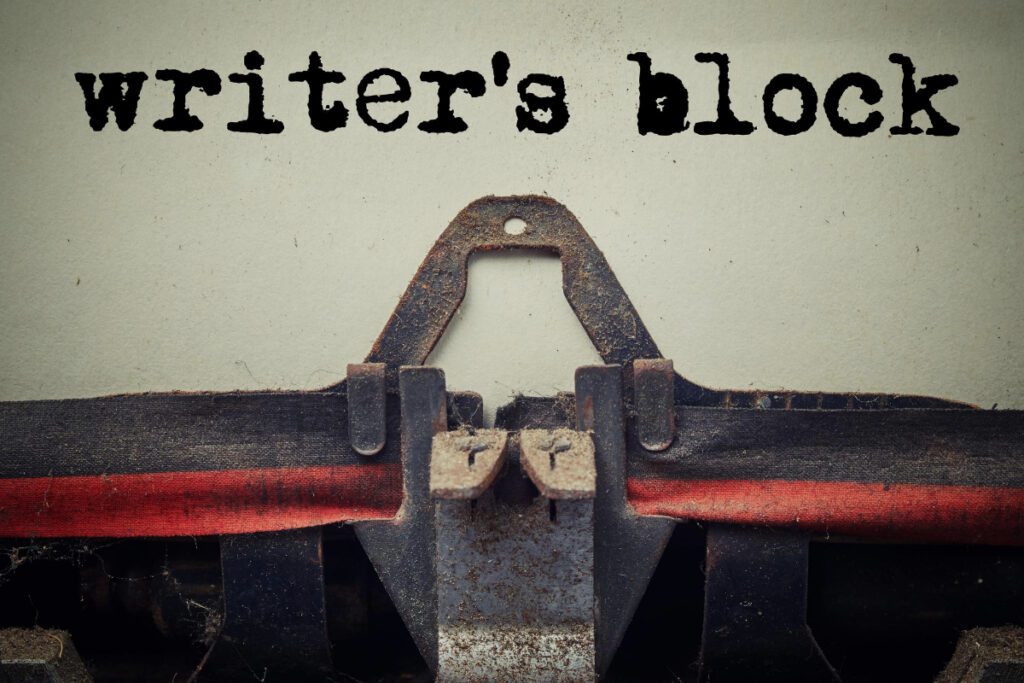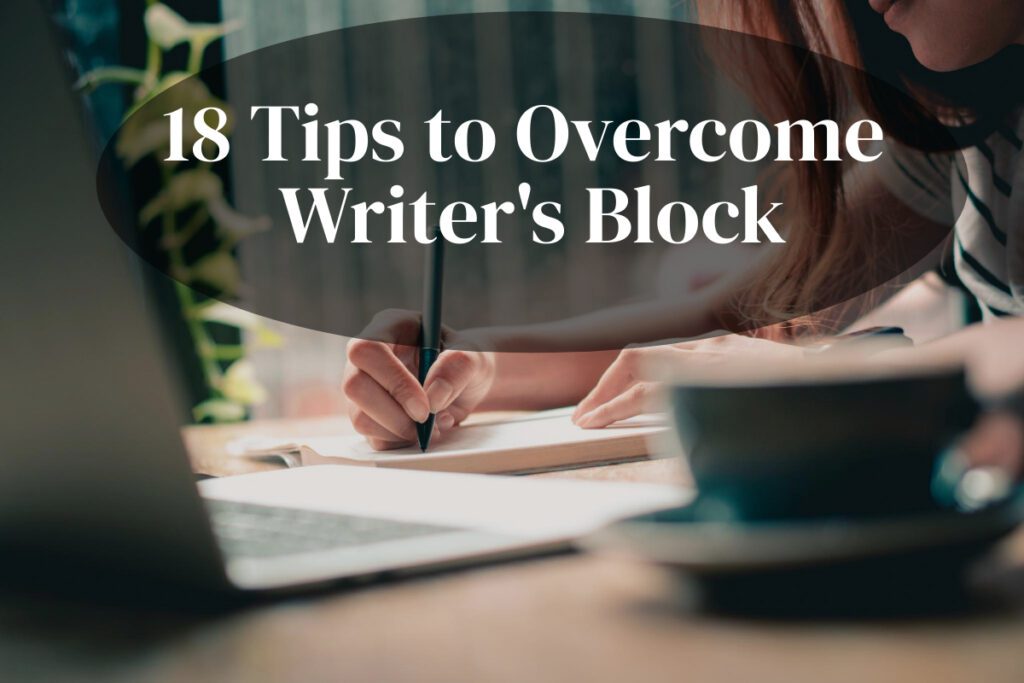Writer’s block is a common problem for people who write original content. It can be caused by a variety of factors, including lack of inspiration, difficulty getting started, and difficulty staying focused.
Currently, writer’s block is becoming more and more common and a mainstream problem due to the increase in technology. However, there are a few things you can do to overcome it. But before I discuss the 18 tips for overcoming writer’s block, let men start by explaining what writer’s block is all about especially for those looking for the definition.
Table of Contents
Toggle
What Is Writer’s Block?
Writer’s block is a condition, that is associated with writing, in which a writer finds it difficult to continue writing content, or struggles with creative ideas when trying to write.
The main issue with writer’s block is that your mind gets clouded and you then find it difficult to put words together in writing. In some cases, writer’s block can range from just finding it difficult to come up with original content ideas for a short writeup to not being able to write original content for years.
How do you know you have Writer’s Block?
If you find yourself struggling to write or producing very little in the way of finished work, it might be time to take a look at your writing process.
However, there are several misconceptions surrounding what we sometimes call the indicators that someone may have writer’s block. Generally, time spent without writing is not the only indicator of writer’s block.
Time spent without productivity in the writing task at hand is also a good indicator to measure writer’s block. Nevertheless, there are many ways to overcome writer’s block that I will be discussing.

Understanding the Different Stages of Writing Process and Overcoming Writer’s Block
To overcome writer’s block, it is important to understand the different stages of the writing process. The following are four steps that are essential for any writer:
1. Planning: Before you write anything, you need to have a plan in place. This includes knowing what you want to write about and how you plan on getting there.
2. Drafting: Once you have your plan, it’s time to draft out your ideas. This means taking your thoughts and turning them into actual words on paper.
3. Revising: Once your draft is complete, it’s time to revise it until it is perfect. This means fixing any mistakes that you found and making sure the content is easy to read.
4. Finishing: Once your revision is complete, it’s time to finish your work. This means putting the finishing touches on your piece and making sure it meets all of your original goals. If you follow these four steps, you will be on your way to overcoming writer’s block.

18 Tips to Overcome Writer’s Block
Here are 18 tips that can help you in overcoming writer’s block.
1. Develop the Habit of Prioritising your To-Do List in Order of Priority
If you want to overcome writer’s block, it’s important to develop a habit of prioritising your to-do list in order of priority. This way, you’ll be able to focus on the tasks that are most important to you and get them done quickly.
2. Develop the Habit of Relaxing before you Start Writing
If you’re experiencing writer’s block, one of the first things you need to do is break the cycle. Writer’s block is often caused by anxiety or stress, so it’s important to find ways to relax before you start writing.
3. Develop a Reading Habit
If you want to be a successful writer, it’s important to develop a reading habit. Reading not only gives you knowledge and understanding of different genres but also helps you develop your writing skills. By reading, you will also learn how to critique and review your work, which is an essential part of the writing process.
4. Get Enough Sleep Regularly
Getting enough sleep is crucial for both your mental and physical health. You’ll be more productive and less likely to experience writer’s block when you’re well-rested.
5. Drink Plenty of Water
Drink plenty of water to help you overcome writer’s block. When you are thirsty, your brain will send out signals that trigger the onset of situations like writer’s block. Drinking water will help to quench your thirst and prevent you from becoming dehydrated.
6. Develop the Habit of Eating Healthy Foods
If you want to be a successful writer, it’s important to have good eating habits. Eat healthy foods and snacks to avoid becoming stressed and triggering writer’s block. Foods that are high in sugar and unhealthy fats will sap your energy and cause you to feel overwhelmed.
By eating healthy foods, you’ll be able to focus better and produce better work.
7. Develop the Habit to Exercise Regularly
Exercising regularly can help you to overcome any writer’s block. By working out, you will increase your energy and motivation, which will help you to produce better work. Additionally, exercise can improve your mood and cognitive function, which will make it easier for you to focus on writing.

8. Improve the Workspace you use for Writing
If you’re experiencing writer’s block, it can be difficult to get started. One of the best ways to overcome this obstacle is to have a conducive workspace. By improving your workspace, you’ll be more likely to be productive. You can do this by investing in a good chair, desk, and lighting. Additionally, make sure that your environment is distraction-free so that you can focus on your work.
9. Get organized
When you’re able to keep your work area clean and organized, it will be easier to find what you need when you need it. This includes both physical objects and digital files.
10. Use Natural Light
When you’re able to work in a space with plenty of natural light, you’ll be more productive. This is because light stimulates the brain and can help you to focus better.
11. Make sure your Environment is Quiet
If there are other people or noises nearby, it can be difficult to concentrate on your work and this can lead to little things that can trigger writer’s block. It’s always a good idea to try to work in a quiet environment.

12. Avoid distractions
If you can, try to keep any electronic devices away from your workspace so that you can focus on the task at hand. Electronics often cause distractions, and distraction is one of the major causes of writer’s block.
13. Plan your Writing with a Content Calendar
One of the most effective ways to overcome writer’s block is to use a content calendar. A content calendar is a tool that helps you plan your writing by setting deadlines for each section of your work. This way, you can avoid getting stuck on a particular part of your work and can move on to new ideas.
14. Set aside Time each Day to Write Without Distractions
Setting aside time each day to write without distractions is another good way to over writer’s block. This may mean turning off the phone, turning off the TV, or scheduling time for writing in your diary. By focusing on writing alone, you can start to break through that barrier and reach your creative potential.
15. Use the Pomodoro Technique
One of the most popular techniques to overcome writer block is the Pomodoro technique. The Pomodoro technique is a time management method that involves working for 25 minutes, then taking a five minute break. This cycle is repeated until the task is completed. By breaking up the task into smaller parts, it becomes more manageable and easier to get started.
16. Listing to Audios that will keep you Motivated
There are many ways to keep yourself motivated when you feel writer’s block. Some people find inspiration in nature, while others may listen to motivational audio such as podcasts, relaxing sounds, audiobooks, and many more. Whichever path you choose, be sure to stay focused and stay on track.
17. Take Regular Breaks when Writing
If you find yourself struggling to get words on the paper, try taking regular breaks. Not only will this help you avoid burnout, but it may also give you a fresh perspective when you come back to your work. For example, take a ten-minute break after every one hour of writing. This will help keep your brain active and engaged while you’re working and help prevent writer’s block from setting in.
18. Get Feedback From those around you
Getting regular feedback about your written work can help you to improve your writing and help you in reducing the chances of getting writer’s block.

Conclusion
As we all know, writer’s block is a common issue among content writers, and it can sometimes be difficult to overcome. However, by applying these 18 tips, you can overcome it and get back into the groove of writing content again. The tips discussed above have personally helped me in overcoming writer’s block and I hope they will help you too!
Related posts:
- 8 Tips on Choosing a Profitable Affiliate Marketing Program
- Discover 9 Tips on How to Write Articles for your Blog
- Is Writer’s Block a Real Thing in the Writing World? Should you be Worried?
- How Much Is Wealthy Affiliate Premium Membership?
- How To Delete My Wealthy Affiliate Account: Here is a Quick Guide
- Discover 8 Things To Do To Make Money At Home



